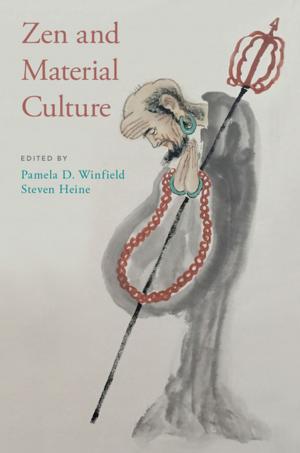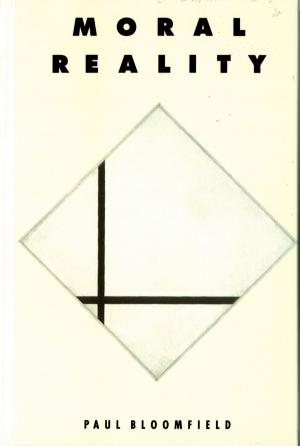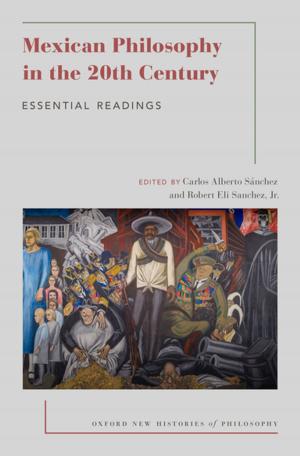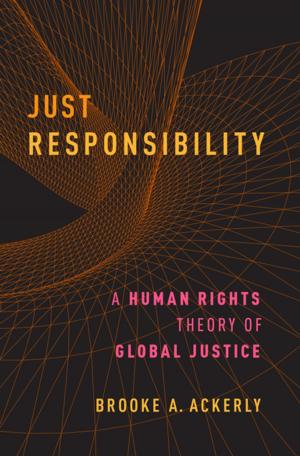Federico Moreno Torroba
A Musical Life in Three Acts
Nonfiction, Entertainment, Music, Theory & Criticism, History & Criticism, Reference| Author: | Walter Aaron Clark, William Craig Krause | ISBN: | 9780199354399 |
| Publisher: | Oxford University Press | Publication: | May 10, 2013 |
| Imprint: | Oxford University Press | Language: | English |
| Author: | Walter Aaron Clark, William Craig Krause |
| ISBN: | 9780199354399 |
| Publisher: | Oxford University Press |
| Publication: | May 10, 2013 |
| Imprint: | Oxford University Press |
| Language: | English |
The last of the Spanish Romantics, composer, conductor, and impresario Federico Moreno Torroba (1891-1982) left his mark on virtually every aspect of Spanish musical culture during a career that spanned six decades and saw tremendous political and cultural upheavals. After Falla, he was the most important and influential musician: in addition to his creative activities, he was President of the General Society of Authors and Editors and director of the Academy of Fine Arts. His enduring contributions as a composer include dozens of guitar works composed for Andrés Segovia and several highly successful zarzuelas, which remain in the repertoire today. Written by two leading experts in the field, Federico Moreno Torroba: A Musical Life in Three Acts explores not only his life and work, but also the relationship of his music to the cultural milieu in which he moved. It sheds particular light on the relationship of Torroba's music and the cultural politics of Francisco Franco's dictatorship (1939-75). Torroba came of age during a cultural renaissance that sought to reassert Spain's position as a unique cultural entity, and authors Walter A. Clark and William Krause demonstrate how his work can be understood as a personal, musical response to these aspirations. Clark and Krause argue that Torroba's decision to remain in Spain even during the years of Franco's dictatorship was based primarily not on political ideology but rather on an unwillingness to leave his native soil. Rather than abandon Spain to participate in the dynamic musical life abroad, he continued to compose music that reflected his conservative view of his national and personal heritage. The authors contend that this pursuit did not necessitate allegiance to a particular regime, but rather to the non-political exaltation of Spain's so-called "eternal tradition," or the culture and spirit that had endured throughout Spain's turbulent history. Following Franco's death in 1975, there was ambivalence towards figures like Torroba who had made their peace with the dictatorship and paid a heavy price in terms of their reputation among expatriates. Moreover, his very conservative musical style made him a target for the post-war avant-garde, which disdained his highly tonal and melodic españolismo. With the demise of high modernism, however, the time has come for this new, more distanced assessment of Torroba's contributions. Richly illustrated with photographs and musical examples, and with a helpful chronology and works list for reference, this biography brings a fresh perspective on this influential composer to Latin American and Iberian music scholars, performers, and lovers of Spanish music alike.
The last of the Spanish Romantics, composer, conductor, and impresario Federico Moreno Torroba (1891-1982) left his mark on virtually every aspect of Spanish musical culture during a career that spanned six decades and saw tremendous political and cultural upheavals. After Falla, he was the most important and influential musician: in addition to his creative activities, he was President of the General Society of Authors and Editors and director of the Academy of Fine Arts. His enduring contributions as a composer include dozens of guitar works composed for Andrés Segovia and several highly successful zarzuelas, which remain in the repertoire today. Written by two leading experts in the field, Federico Moreno Torroba: A Musical Life in Three Acts explores not only his life and work, but also the relationship of his music to the cultural milieu in which he moved. It sheds particular light on the relationship of Torroba's music and the cultural politics of Francisco Franco's dictatorship (1939-75). Torroba came of age during a cultural renaissance that sought to reassert Spain's position as a unique cultural entity, and authors Walter A. Clark and William Krause demonstrate how his work can be understood as a personal, musical response to these aspirations. Clark and Krause argue that Torroba's decision to remain in Spain even during the years of Franco's dictatorship was based primarily not on political ideology but rather on an unwillingness to leave his native soil. Rather than abandon Spain to participate in the dynamic musical life abroad, he continued to compose music that reflected his conservative view of his national and personal heritage. The authors contend that this pursuit did not necessitate allegiance to a particular regime, but rather to the non-political exaltation of Spain's so-called "eternal tradition," or the culture and spirit that had endured throughout Spain's turbulent history. Following Franco's death in 1975, there was ambivalence towards figures like Torroba who had made their peace with the dictatorship and paid a heavy price in terms of their reputation among expatriates. Moreover, his very conservative musical style made him a target for the post-war avant-garde, which disdained his highly tonal and melodic españolismo. With the demise of high modernism, however, the time has come for this new, more distanced assessment of Torroba's contributions. Richly illustrated with photographs and musical examples, and with a helpful chronology and works list for reference, this biography brings a fresh perspective on this influential composer to Latin American and Iberian music scholars, performers, and lovers of Spanish music alike.















